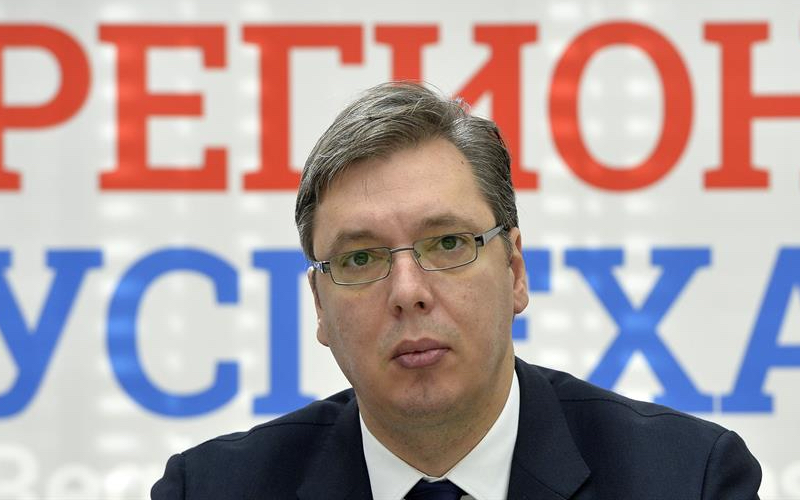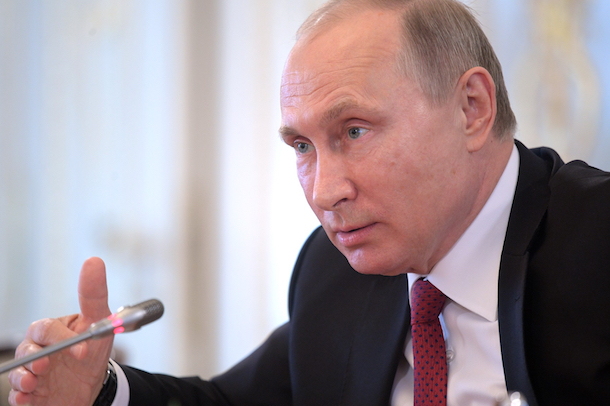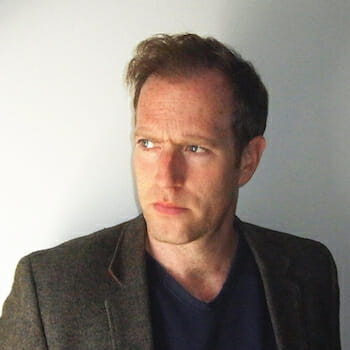
Serbia’s Balancing Act
The first lesson for leaders in Belgrade is that the key to political success is balancing.
In the Yugoslav period, Tito proved himself to be a master of the art, extracting largesse from both the United States and Soviet Union, while balancing rival forces at home.
Four decades later, a new Serbian president, Alexander Vučić, is attempting to maximize his country’s interests with a similar balancing strategy.
East vs West
At the international level, this means walking a tightrope between the European Union and Russia.
For Serbia, Europe represents economic opportunity: the place where it seeks trade, investment and subsidies, and where Serbs can migrate for work as they used to in the Yugoslav period when many arrived as gastarbeiter in Austria and Germany. The EU also represents political respectability, something which Serbia would like to associate itself with after being relegated to the status of an international pariah in the 1990s.
To this end, Vučić is keen for Serbia to press ahead with European integration – a process which has proceeded at a grindingly slow pace since the EU agreed in principle to expand into the Balkans in 2003 – and is doing what he needs to in order to satisfy the West. Since taking power, initially as prime minister, Vučić has begun to reform the economy. He sat down with the leaders of Kosovo to normalise relations with the breakaway republic and developed Serbia’s ‘Partnership for Peace’ with NATO, by collaborating in military exercises.
Already, Serbia is experiencing the benefits of these efforts in the form of growing foreign investment from Western companies which are gambling on Serbia’s deepening integration with the rest of Europe.
By contrast, Russia represents security – not just the heavy weaponry it sells to Serbia and the implicit security guarantee that Moscow provides against external aggression, but the security of its territory that follows from Russia’s refusal to recognize Kosovo. This, by extension, blocks any broader international recognition of the territory’s independence.
To this end, Serbia is fastidious in maintaining good relations with Moscow, opening up its national energy sector to the Russian state, allowing Kremlin spies to operate in the country, shunning overtures by NATO to join the military alliance and refusing to align Serbia with the EU’s sanctions regime. Most recently, President Vučić has also established a well-funded special Office for Cooperation with Russia (and China).
By and large, the strategy is working. Not only has Serbia emerged as the dominant power in the Western Balkans. But a decade after independence, it retains a stranglehold on Kosovo which prevents it from developing as a state and could lead to its eventual failure.
Meanwhile, on the domestic level, President Vučić is fastidiously maintaining a balance of power between the various competing factions in Serbian politics, above all the liberal reformists concentrated in Belgrade and other urban centres, and the conservative nationalists who inhabit the rest of the country.

This is evident in the composition of the new Serbian government. At its helm is the unusual figure of Ana Brnabić, a liberal reformer and committed Europhile who embodies what she champions: an English-speaking, cosmopolitan and Western-educated woman with a background in business and, perhaps most remarkably, openly gay in country with a distinctly un-European attitude towards homosexuality.
By appointing a Prime Minister who appeals to Serbia’s Western interlocutors and who he hopes can unblock the accession process, Vučić is sending a clear signal to liberals at home and political leaders in Europe that he is serious about advancing the goal of EU integration.
At the same time, Vučić has awarded prominent positions to politicians representing a very different strand in Serbian politics. The most obvious of these is Ivica Dačić, Moscow’s point-man in Belgrade and a staunch opponent of Kosovo’s proclaimed independence, who retains his position as Serbia’s Foreign Minister. Vučić has also promoted the Russophile Aleksandar Vulin, who once described NATO as ‘evil,’ to the position of Minister of Defence and conservative Nenad Popović to the position of Minister without Portfolio.
In making these appointments, Vučić is signaling to nationalists at home that Kosovo remains an integral part of the Serbian state and to Moscow that Serbia’s loyalty is intact, despite its overtures towards the West.
Strengthening the Centre
Of course, the essential component in any strategy of balancing is a strong pivot on which the various forces can tilt, a figure who sits unchallenged at the centre of political life, controlling all the key appointments.
This is a role which Vučić has now firmly created for himself, having built his Serbian Progressive Party into the dominant political force in the country, not least by simultaneously talking both the language of reform and integration and nationalism and solidarity with Russia.
Now, as head of state, Vučić effectively controls all the key institutions of state, beginning with the president’s office and the army, but also the executive and parliament and, by means of informal networks, the judiciary, intelligence services and much of the private economy which relies on the goodwill of the ruling party for its survival. Job security in the upper echelons of the Serbian elite ultimately depends on Vučić.
In theory, his one potential rival in the system is the prime minister, who is notionally head of government. Until April this year, Vučić occupied the position that was the role the prime minister played.
However, Vučić has found a solution to the problem, by making the new prime minister’s tenure in power dependent on Vučić himself. Notwithstanding her technocratic skills, Ana Brnabić’s outstanding characteristic is that she is a political outsider, a relative unknown and a political independent, with no power base in the party, the government or parliament. Instead, she derives all her authority from Vučić, depends on him entirely for her political survival and can be disposed of it when Vučić deems it expedient – something which Belgrade insiders are already anticipating.
Maintaining Balance
The risk with balancing, of course, is that the leader inadvertently alienates the various forces he is trying to marshal, and destabilizing the careful edifice he has created.
Russia is allegedly displeased by the appointment of Brnabić as prime minister, perceiving her to be an agent of Western interests at the heart of government. Moscow’s fears will not have been assuaged when she said last week that, if forced to choose, she would put the EU before Russia.
Neither are conservative members of Vučić’s own party, who do not share his enthusiasm for pleasing the West and were passed over for promotion to make way for Brnabić. Significantly, after announcing Brnabić as his candidate for prime minister, a tense week passed before Vučić secured sufficient support for her appointment among his own parliamentarians.
Conversely, Vučić’s independent line on Kosovo and Russia, and the retreat from democracy which his strategy of balancing involves, has also alienated figures within the EU. The goal of European integration appears to be receding into the distance even as Brnabić is charged with securing it.
Fortunately, however, the country’s modern history offers a salient lesson for Vučić. When the balance tips too far in one direction, the solution is simply to restore equilibrium by rearranging the liberal and conservative forces at home, or playing to Brussels or Moscow abroad. In this old Belgrade act, Vučić is already proving a seasoned player.


